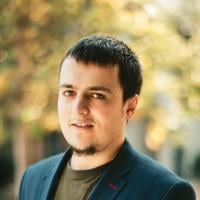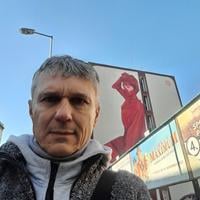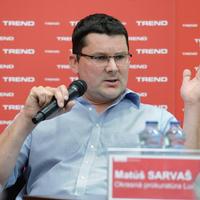http://www.nationalreview.com/article/445663/quantum-computing-intelligence-security-improvement
by Arthur Herman March 10, 2017 12:00 PM @ArthurLHerman Keeping secrets will be easier, but that’s not all. The most recent WikiLeaks document dump regarding the CIA has made it clear that it’s getting harder and harder to keep secrets in the digital age. If the CIA — or foreign intelligence services like Britain’s — aren’t eavesdropping on our conversations by surreptitiously turning on our Samsung TVs or hacking into our supposedly encrypted smart phones (and disguising themselves as Russian hackers while they’re doing it); if actual Russian and Chinese and North Korean hackers aren’t burrowing through one firewall after another in our corporate or government networks; then we have rogue insiders like Edward Snowden, former sergeant Manning, and very possibly whoever sent these 9,000 CIA documents to WikiLeaks, feeling free to expose mounds of classified documents to public scrutiny whenever they feel like it, on the rationale that it’s more ethical for you as a citizen of the world to endanger your nation’s security than to protect it as you are legally required to do. No one can be very shocked that the CIA, or any other spy agency, has the capabilities the WikiLeaks documents allege that it does. What’s shocking is that we didn’t find out sooner. In an intelligence community that has become populated by rogue whistleblowers (or, as the Michael Flynn case suggests, rogue employees on a vendetta) and in which our most trusted and guarded information networks have become extremely porous, the mission motto of the 1992 Robert Redford movie Sneakers — “No More Secrets” — may be coming to pass before our eyes. Fortunately, however, there is a silver lining to all these dark shadows. That’s the advent of quantum cryptography, which uses quantum mechanics, instead of digital algorithms, to encrypt data. The data will then be forever immune from hackers or malware makers; the only users who will see it will be you and whoever you are sending it to or sharing it with. Big Brother’s data may finally be safe; but so will your data, from an unauthorized Big Brother. How does quantum cryptography work? Since the late 1940s, standard digital computing has relied on the same binary linear sequence of the numbers 1 and 0 to encode, transmit, and then read messages via electricity. The process has gotten faster over the last 70 years, thanks to the transistor, the microchip, and using more and more conducive media through which to send the electrons. But ultimately the electronic digital process that ENIAC used to do computations for the Army during the Truman administration is still the same as the one that runs your smart phone — or the world’s biggest supercomputer. Quantum computing turns to the electron’s smaller nuclear cousin, the quantum, to transmit message data. That eliminates the need for the traditional 0-1 linear sequence; instead a quantum bit can be both a zero and a one at the same time. That not only exponentially speeds up the transmission process; it means interrupting the linear process. The opening for traditional hacking techniques vanishes in an uncertain haze. Is a bit a zero or one? Only its programmer, and receiver, knows for sure. With the advent of quantum cryptography, data will be forever immune from hackers. A metaphor helps here. Think of the standard Internet server as the equivalent of a telephone landline; a hacker can tap it like an eavesdropper who taps the wire to listen in on a conversation. With quantum cryptography, the intrusion of another listener snaps the cable. The sender and receiver know at once that the connection has been severed, and why. Hacking has become an exercise in futility; sender and receiver are able to communicate in confidence, knowing that their connection defies any intrusion from unwanted guests. Quintessence Laboratories in Australia is just one of the companies involved in quantum cryptography that say that a commercially viable version of quantum cryptography will be available in 18 months or two years — creating a virtually unhackable cyber universe. That’s the good news, that quantum cryptography can either be installed directly on devices, which revolutionizes the Internet of Things, or be accessible in the quantum cloud. The bad news is the same quantum principles will also revolutionize computing itself in another decade or less. It will turn even our most advanced current systems into today’s equivalent of TVs with rabbit ears. (If you aren’t old enough to know what those are, you can ask your grandmother.) Quantum computing will rip through any and all conventional algorithms for encryption literally in less than a blink of an eye. The challenge is that the instability of quanta that makes quantum cryptography so effective makes quantum computing — i.e., transforming the entire digital universe into a quantum-driven cyber sphere — daunting. Nonetheless, other countries are trying. The Chinese are already feverishly working to achieve the first big breakthrough in quantum computers; so are the Europeans. This is the Next Big Thing in information technology. As with all technological revolutions, it has two sides — one positive, one negative. It will shut some doors we all want shut, and eventually will open others we’d all prefer shut. We can’t let current scandals distract us from preparing for the brave new world to come, and taking a clear-eyed look before making the Quantum Leap. — Arthur Herman is a senior fellow at the Hudson Institute. His most recent book, Douglas MacArthur: American Warrior, was published in June.
Read more at: http://www.nationalreview.com/article/445663/quantum-computing-intelligence-security-improvement
Google translate:
Udržať tajomstvo bude jednoduchšie, ale to nie je všetko. Najnovšía skládka WikiLeaks dokumentov týkajúca sa CIA dala jasne najavo, že je čím ďalej ťažšie a ťažšie udržať tajomstvo v digitálnom veku. V prípade, že CIA - alebo zahraničné spravodajské služby, ako je v Británii MI6 - by neodpočúvali naše rozhovory s utajemyn zapnutím našich televízorov Samsung alebo hackerom do našich údajne zašifrovaných inteligentných telefónov (a prestrojením sa za ruských hackerov, zatiaľ čo si hackeruju); ak pravý ruský, čínsky čí severokórejskí hackeri sa nehrabu v jednom firewalle ci v druhom, v našich podnikových alebo štátnych sietíach; potom máme tiez nečestnych zasvätencov ako Edward Snowden, bývaleho seržanta Manninga, a veľmi pravdepodobne tiez toho, kto poslal 9,000 CIA dokumentov na WikiLeaks, ktory sa citil ze je volny vystaviť hromady tajných dokumentov k verejnej kontrole, kedykoľvek ma pocit ze je to etickejšie pre vas ako občana sveta ohroziť bezpečnosť svojho národa, než na jeho ochranu, ako je potrebné legálne. Nikto nemôže byť veľmi šokovany, že CIA, alebo akákoľvek iná špionážna agentúra, má schopnosti, ktore WikiLeaks dokumenty potvrdzuju. Čo je šokujúce je, že sme to nenašli skôr. V spravodajskéj komunite, ktorá sa naplnila podvodnými informátormi (alebo v prípade Michaela Flynna, nepoctivého zamestnanca v pomste) a v ktorej naše najdôveryhodnejše a strážené informačne siete sa stali veľmi derave, motto missie filmu Tenisky z roku 1992 s Robertom Redfordom - "No More Secrets" - môže byť zakratko pred našimi očami. Našťastie však su tu strieborne okraje, na všetky tieto temné tiene. To je nástup kvantovej kryptografie, ktorý používa kvantovú mechaniku, namiesto digitálnych algoritmov pre šifrovanie dát. Informacie potom budu navždy imúnne pred hackermi alebo tvorcami malwaru; budu zrozumitelne iba tym co data zasielaju a tym ktorym su data urcene. Big Brother data môžu byť konečne bezpečné; ale rovnako tak aj vase dáta chranen od statneho spehovania.
Ako kvantová kryptografia funguje? Od konca 1940, štandardné digitálne pocitace sa spoliehali na dvojbodovej lineárnej sekvencii čísel 1 a 0 na zakódovanie, prenos a čítanie správy pomocou elektriny. Tento proces sa urýchlil v priebehu posledných 70 rokov, a to vďaka tranzistora, mikročipu, a použitia vylepsenychch spojeni, ktoré prevedu elektróny. Ale v zaklade ten elektronický digitálny proces, ktorý ENIAC pouzival na výpočty pre armádu počas Trumanovej administrácie je stále rovnaký ako ten, ktorý beží vo vášom "smartphone" - alebo najväčšom superpočítači na svete. Quantum computing sa obracia na menšieho jadroveho bratranca elektrónu, quantum, na prenášanie dáta. Tym eliminuje potrebu tradičného 0-1 lineárneho postupu; namiesto toho kvantový bit môže byť aj nulový aj jeden v rovnakom čase, teda sucasne. Nie len ze exponenciálne urýchľuje proces prenosu; tiez prerušuje lineárny proces. Otvor pre tradičné hackerske metody mizne v neistej hmle. Je to nula alebo jedna? Iba jeho programátor, a prijímač, vie iste.
Metafora tu pomáha. Myslite na štandardny internetovy server ako ekvivalent zemnej telefónnej linky; hacker ju moze využiť ako Eavesdropper ktorý si napoji drôt na odpočúvanie konverzácie. V kvantovej kryptografii, vniknutie iného poslucháča prerusi kábel. Odosielateľ a príjemca vedia hneď, že spojenie bolo prerušené, a prečo. Hacking sa stane cvičením v márnosti; odosielateľ a príjemca sú schopní komunikovať s dôverou, s vedomím, že ich spojenie odola akymkolvek pokusom vniknutiu nechcenými hosťami. Kvintesencie Laboratories v Austrálii je len jedným z podnikov pôsobiacich v oblasti kvantovej kryptografie, ktoré tvrdia, že komerčne životaschopna verzia kvantovej kryptografie bude k dispozícii do 18 mesiacov alebo dva roky - na vytvorenie prakticky unhackable cyber vesmíru. To je dobrá správa, že kvantová kryptografia môže byť nasadena priamo na zariadeniach, ktoré zmodernia "Internet vecí", alebo mozu byť dostupné v kvantovej oblaku. Zla správa je ze rovnake kvantove zásady budú tiež revolúciou vo výpočtovej vede ako takej, za desať rokov alebo skor. To zmení aj naše najvyspelejšie súčasné systémy do dnešnej urovne televízorov s antenami ako králičie uši. (Ak nie ste dosť starý vedieť, čo to je, môžete sa opytat svojej babičky.) Quantum computing bude trhať cez všetky bežné algoritmy pre šifrovanie doslova rychlejsie ako žmurknutie oka. Problémom je, že nestabilita kvánt, cez ktoré je kvantová kryptografia tak efektívna, je zmena celej kvantovej výpočtovej techniky - to znamená, transformacia celeho digitálneho vesmíru do kvantove riadenej Cyber guľe - na strach. Ale i tak, v iných krajinách sa snažia. Číňania už horúčkovito pracujú, aby sa dosiahol prvý veľký prielom v kvantových počítačov; tak tiez Európania. Tu je ďalšia Veľká Vec v oblasti informačných technológií. Rovnako ako u všetkých technologických revolúcií, má dve strany - jednu pozitívnu, jednu negatívnu. Tu sa zavru niektoré dvere, ktore všetci chceme zatvorené, a nakoniec sa otvoría ine ktore by sme všetci radšej nechali zatvorené. Nemôžeme dopustiť, aby súčasne škandály odvrátili našu pozornosť od príprav na odvážny nový svet ktory ma prísť, a s jasnymi očami hladeli na veľký skok.






